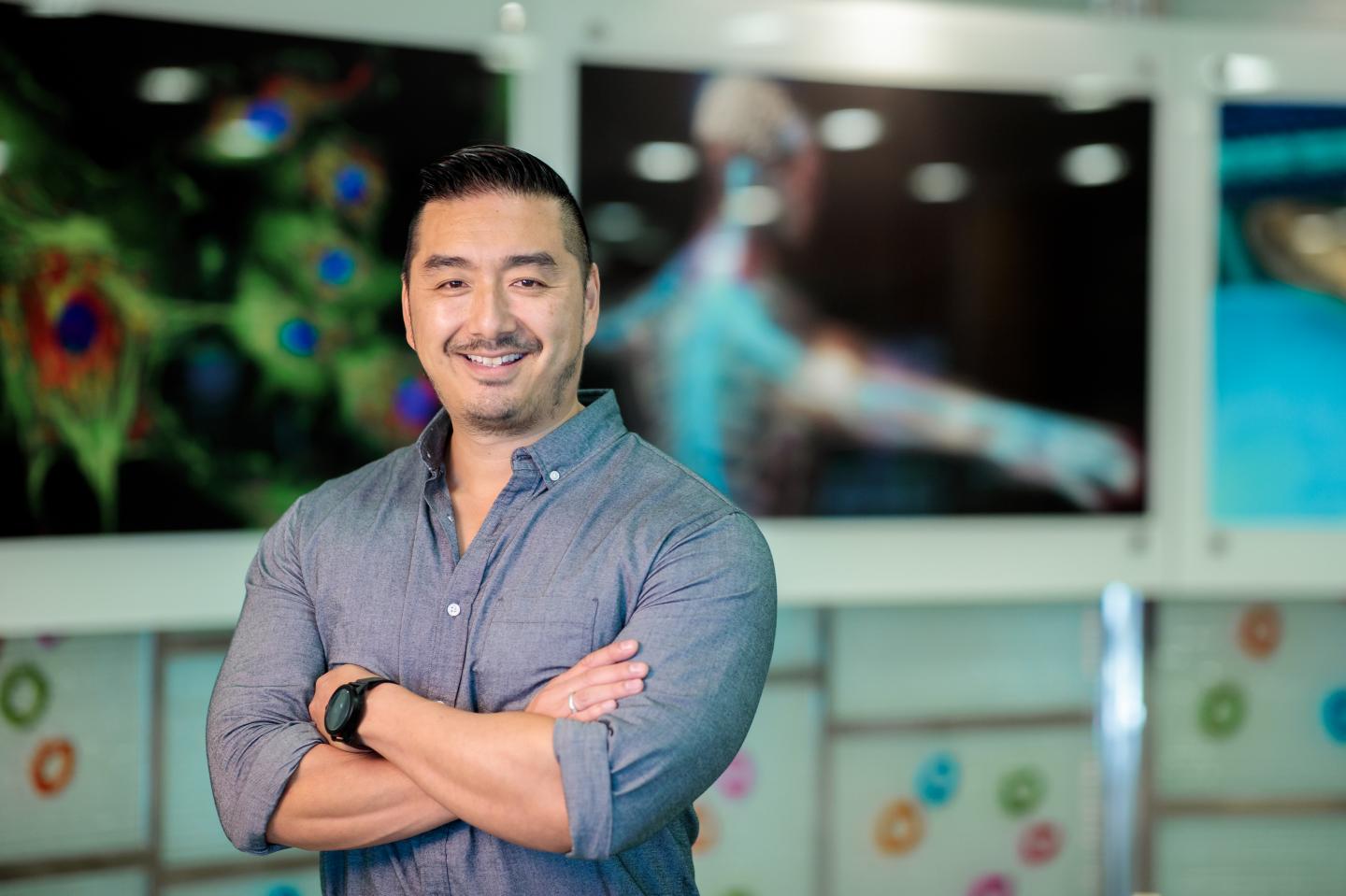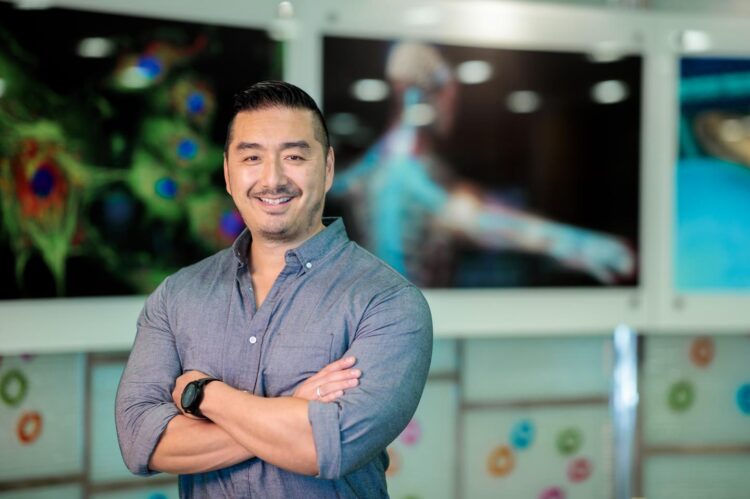Novel tool identifies optimal drug combination therapies at unprecedented speed

Credit: National University of Singapore
As the COVID-19 crisis continues to develop, researchers around the world are attempting to find the most effective treatment to combat the poorly understood virus behind this disease.
Traditionally, when dangerous new bacterial and viral infections emerge, the response is to develop a treatment that combines several different drugs. However, this process is laborious and time-consuming, with drug combinations chosen sub-optimally, and selection of doses is a matter of trial and error. This costly and inefficient way of developing a treatment is problematic when a rapid response is crucial to tackle a global pandemic and resources need to be conserved.
With this in mind, Professor Dean Ho from the National University of Singapore (NUS) led a multidisciplinary team of researchers to come up with a pioneering artificial intelligence (AI) platform known as ‘IDentif.AI’ (Identifying Infectious Disease Combination Therapy with Artificial Intelligence) to dramatically increase the efficiency of this development.
Their results were published in Advanced Therapeutics on 16 April 2020.
Drawbacks of traditional drug screening
Conventional selection of drugs for treatment involves examining virus or bacteria growth in response to different potential candidates. The drugs are given to the bacteria or viruses at increasing dosages until maximal prevention of their growth is observed. Additional drugs are then added together to amplify the effect. However, these methods become ineffective when several drugs are simultaneously studied as candidates. Also, these approaches often result in positive outcomes for in vitro studies, but are not observed in human studies.
“If 10 or more drugs are examined, it is virtually impossible to study the effects of all the possible drug combinations and dosages needed to identify the best possible combination using traditional methods,” explained Prof Ho, Director of The N.1 Institute for Health and Institute for Digital Medicine (WisDM) at NUS.
Furthermore, in traditional screening, if a drug from a pool of candidate therapies is shown to have no apparent effect on the pathogen, this drug will generally no longer be considered. “However, if this drug is systematically combined with more drugs, each at the correct doses, this could very well result in the best possible combination. Unfortunately, this remarkable level of required precision cannot be arbitrarily derived,” added Prof Ho, who is also the Head of the NUS Department of Biomedical Engineering.
Using artificial intelligence to optimise drug therapies
To avoid the drawbacks of traditional drug combination therapy development, Prof Ho and his team, together with collaborators from Shanghai Jiao Tong University harnessed the processing power of AI.
The research team carefully selected 12 drugs which are viable candidates for treating an infection in lung cells caused by the vesicular stomatitis virus (VSV). They then used IDentif.AI to markedly reduce the number of experiments needed to interrogate the full range of combinations and optimal dosages of these 12 drugs.
“Using IDentif.AI, we took three days to identify multiple optimal drug regimens out of billions of possible combinations that reduced the VSV infection to 1.5 per cent with no apparent adverse impact. This speed and accuracy in discovering new drug combination therapies is completely unprecedented,” said Prof Ho.
Importantly, the team saw that when the top-ranked drug combination was optimally dosed, it was seven times more effective compared to sub-optimal doses. This shows the critical importance of ideal drug and dose identification.
Similarly, when a single drug was substituted out from the top-ranked drug combination, and this new combination was administered at sub-optimal doses, the combination was 14 times less effective.
“There is a notion in drug discovery that if you discover the right molecule, the work is done. Our results with IDentif.AI prove that it is critically important to think about how the drug is developed into a combination and subsequently administered. How do you combine it with the right drugs? How do you dose this drug properly? Answering these questions can dramatically increase efficacy at the clinical stage of drug development,” shared Prof Ho.
In addition to validating IDentif.AI, this study also included insights by a team of experts in operations research and healthcare economics from NUS Business School and KPMG Global Health and Life Sciences Centre of Excellence, as well as global health security and surveillance experts from EpiPointe LLC and MRIGlobal. They concluded that strategies such as IDentif.AI, which can rapidly optimise drug repurposing under austere economic conditions amidst pandemics, could play a key role in improving patient outcomes compared to standard approaches.
Using IDentif.AI against COVID-19 and more
Having proved the effectiveness of IDentif.AI to rapidly provide treatments for infectious diseases, the team is currently setting their sights on COVID-19.
Prof Ho said, “As the development of vaccines and antibody therapies for COVID-19 are ongoing, we will need a rapid therapeutic strategy that addresses the virus which may evolve over time. Our strength is that we can perform one experiment and come out with a list of drug combinations for treatment within days. And in time, if patients do not respond well to the first combinations of drugs, we can derive new combinations within days to re-optimise their care. Our platform is useful to address the possibility that patients will need different drug combinations depending on when treatment was initiated, and if downstream infection with a different strain occurs.”
Furthermore, IDentif.AI could be immediately deployed to address any other infectious diseases in the future. Prof Ho concluded, “When an aggressive pathogen hits, a rapid response is needed, and this response may need to evolve quickly as the pathogen evolves. Now, with IDentif.AI, we will be ready.”
###
Media Contact
Carolyn Fong
[email protected]
Original Source
http://news.
Related Journal Article
http://dx.





